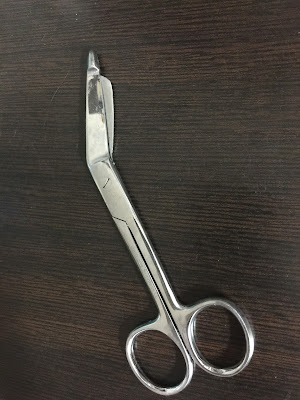The first time I rode an ambulance back then was in the Philippines. We have a simple ambulance car with just have enough equipment for transporting a patient. As I can remember, it is always a bumpy ride with your patient who is very critical that needs care while traveling. Usually, patients were transferred according to their own choice or the patient needs a higher facility to take care of his/her condition.
Now, I am working in a country with a very good ambulance vehicle highly equipped with machines needed by the patient during transport. I am very ecstatic to experience riding their ambulance. This time, we took a patient from the airport sent by Medevac. Medevac means a transfer or evacuation of a patient going to the hospital through helicopter or airplane, along with nurses and doctors for critical patients.
Prior transport, you need to double check that all the equipment inside are functioning. Know the case and status of the patient you are going to send or fetch because you need to secure all fluids and medications needed.
Since the patient that we were going to fetch from the airport was unstable and ventilated, we rode along with the respiratory therapist and a Doctor aside from EMS staff.
As nurse inside the ambulance, of course, i got nervous of what might happen to the patient along the road. I had a colleague while taking the patient from the airport and transferring to the hospital, the patient crashed and they had to do CPR along the way. Thinking about it sends chills on me.
As nurse inside the ambulance, of course, i got nervous of what might happen to the patient along the road. I had a colleague while taking the patient from the airport and transferring to the hospital, the patient crashed and they had to do CPR along the way. Thinking about it sends chills on me.
But thank God, we arrived at the hospital safe and the patient was sent directly to the ICU for management and treatment.
Happiness and satisfaction were what I felt that time since we transported the patient safe and nothing unwanted happened along the way.
Happiness and satisfaction were what I felt that time since we transported the patient safe and nothing unwanted happened along the way.
just got another experience to share, thanks for reading. :)
The nurse transporter.
















